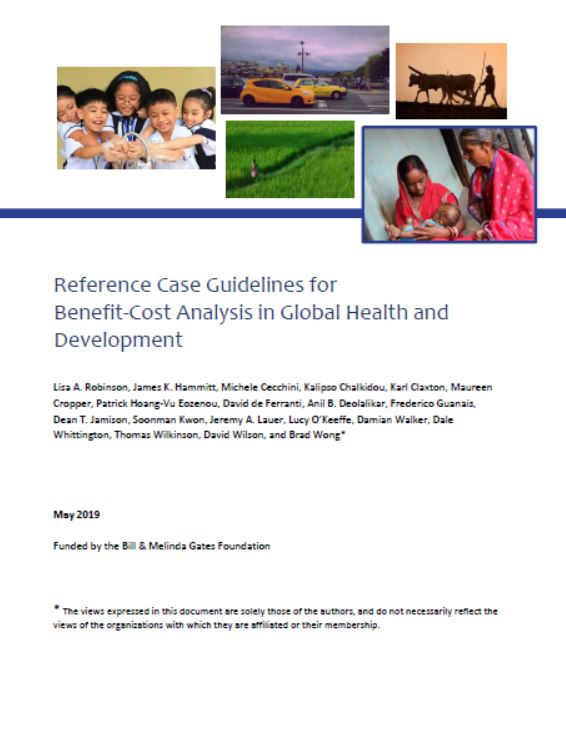Reference Case Guidelines for Benefit-Cost Analysis in Global Health and Development
 |
rapport May 2019 ; 126 pages
Ed. Bill & Melinda Gates Foundation - Seattle
Téléchargeable sous format: PdF
Téléchargeable chez l'éditeur
Page de présentation d'un éditeur
Résumé:
Ce document constitue la conclusion du projet scénario de référence de l'analyse avantages-coûts « Benefit‐Cost Analysis Reference Case: Principles, Methods, and Standards”, initié par la Fondation Bill & Melinda Gates en 2016. Le but de ce projet est de promouvoir l'utilisation et l'utilité de l'analyse coûts-bénéfices. Ce guide vise à clarifier les concepts de base, à faciliter la mise en œuvre et à fournir des valeurs de référence pour les paramètres-clés. L’ensemble des études produites dans le cadre du projet peuvent être consultée : https://sites.sph.harvard.edu/bcaguidelines
Abstract:
These final Reference Case Guidelines for Benefit-Cost Analysis in Global Health and Development represent the conclusion of the “Benefit‐Cost Analysis Reference Case: Principles, Methods, and Standards”project, initiated by the Bill & Melinda Gates Foundation in October 2016. The aim of this project is to promote the use and the usefulness of benefit-cost analysis. The guidelines are designed to clarify important concepts, aid in implementation, and provide default values for key parameters including options for standardized sensitivity analysis. This main guidelines document is intended for use by practitioners with some training and experience in conducting economic evaluations, including those who work for academic institutions, government agencies, international organizations, non governmental organizations, other non-profit or for-profit entities, and independently. Additional materials for diverse audiences are available on the website: https://sites.sph.harvard.edu/bcaguidelines
Editeur/Diffuseur: |
|
Bill & Melinda Gates Foundation - Seattle - Etats Unis |
En cas de lien brisé, nous le mentionner à communication@pseau.org